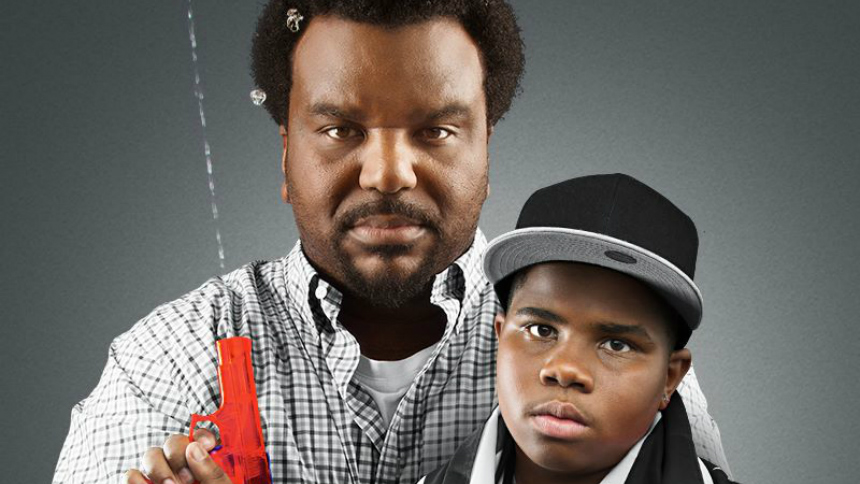Review: MORRIS FROM AMERICA, Black Bodies in White Hands

Let me set a scene for you. A few years back at a party for filmmakers, one white filmmaker who has written and directed a critically acclaimed film with black leads says to another who has done the same: "I cast African Americans in my movie because I thought it would help me. It won me an award but nobody's seen my movie. I'll never make that mistake again." An acclaimed black director observes, aghast.
Upon hearing this story, I shook my head and nodded. This isn't new. The pillaging and embrace of our stories and our bodies for accelerated acclaim is a tale as old as time; many of them are our most canonical tales of black American life: Uncle Tom's Cabin, The Adventures of Huckleberry Finn, Porgy & Bess. That, in hindsight, our bodies were accessories in the white imagination or that those stories became tools to further oppress us when dissecting these "masterpieces" now makes our relationship to them even more complex. Hindsight is our fear when we observe you telling our stories and winning the awards. In the back of the minds of every black and brown person is the constant "Why, though?"
Yet, in my mind, I'd rather be able to ask the question "Why, though?" than not have the opportunity at all. This, perhaps, is what compelled me to write a response to IndieWire Playlist reviewer Sam Fragoso's Morris From America review. In it, Sam begins by referencing the recent cause celebrè, #OscarsSoWhite, the only racial conversation it seems many in our industry are willing to actively and animatedly engage with in the public eye. He comes out the gate running with this damning critique: "Focused on fetishizing rather than intimately depicting, director Chad Hartigan has produced a warm-hearted yarn that treats its two African-American leading men like props in his white-washed game of chess." Damn.
In one sentence, Fragoso has stopped 35 young white filmmakers with the means to disrupt the amount of white faces we see on screen from wanting to do it at all. They will ask themselves, "Why, though?" and then go back to writing movies about white guys who don't have social skills repairing a broken heart in the arms of a woman who dresses like Grimes and drinks him under the table.
While I admire the social impetus behind posing said critique, Fragoso undermines his own call for a world where the Oscars aren't so white. It is not disingenuous to say that because of racial and economic inequalities that exist in our country, it will always be easier for young white filmmakers to tell stories than it is for young filmmakers of color (This essay from The Atlantic gives a detailed analysis of why white millennials are able to excel in the arts faster than millennials of color). So, in my mind, it is imperative if we want to diversify the faces we see on screen it's by encouraging instead of discouraging white storytellers to attempt to tell stories with black and brown people at their center, even if they stumble along the way.
In Morris From America, Hartigan follows Morris (a deeply charming Markees Christmas) who has moved to Heidelberg, Germany where his father (played with nuance and depth by Craig Robinson) is a soccer coach. Morris doesn't like being in Germany. He misses Richmond, he misses his friends, and most of all he seems to miss his mother, who exists as a sort of ghost that roams over the film and guides every choice our characters make.
When his tutor (a surprising Carla Juri) pushes him to join the local community center to make new friends with whom Morris can practice his German, he relents, and thus our outsider coming of age tale begins. He has a hard time making new friends until he sees a beautiful, young woman (Lisa Kerner) who sees his youth and finds it charming. Morris falls in love; this is when our hero's troubles begin.
Sam Fragaso, I should mention, is white. Like many young white people who have begun the work of pushing against white supremacy, I fear that he has used a tool that helps sustain it: erasure. What seemingly bothered him the most about the narrative Hartigan presents us with was the accumulation of micro aggressions that Morris begins experiencing after joining the community center and falling for the young woman, Katrin: "Slowly, though, the film drifts away from the concept of two wide-eyed teenagers excited by the unfamiliar (and new) sensations of lust. Katrin devolves into caricature, angsty and angry, disingenuously fixated with Morris' blackness -- especially his aspirations to become a rapper. In fact, all of his peers approach Morris as if it's the first time they've interacted with a person of color." (<<P.S. it probably is their first time.)
Originally published during the 2016 Sundance Film Festival. Morris From America opens in select U.S. theaters on Friday, August 19.
Morris from America
Director(s)
- Chad Hartigan
Writer(s)
- Chad Hartigan
Cast
- Markees Christmas
- Craig Robinson
- Carla Juri
- Patrick Güldenberg







